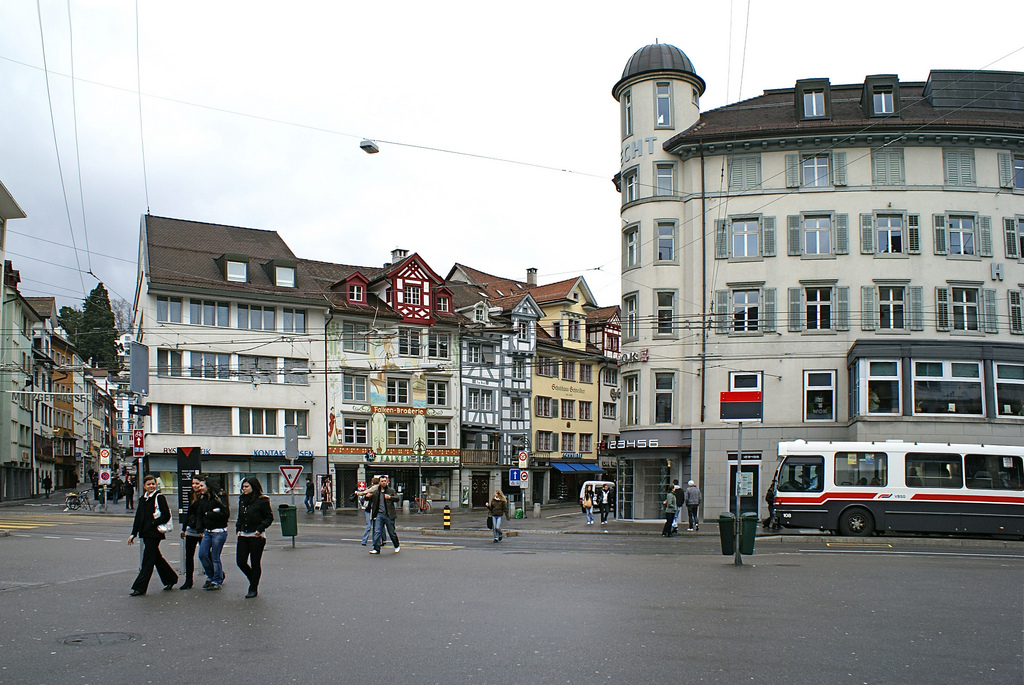Geothermal still with public support in St. Gallen Switzerland
Swiss foundation Risiko Dialog still sees a chance for the geothermal project in St. Gallen, due to the project having been voted for by the population in a vote in a referendum among its residents.
Following the earthquake in St. Gallen, Switzerland, there were immediate voices that this might be the end for the geothermal project in the city and maybe even for Switzerland.
But, in a recent interview with Swiss publication Landbote, Lasse Wallquist, Project Leader for Energy Technologies of Risiko Dialog, a Swiss foundation focused on moderating between different stake holders in technology projects, provides some hope.
Asked if the earthquake was the beginning of the end of the geothermal project, he says that this doesn’t necessarily needs to mean an end to the project. “By far not all people in the city of St. Gallen are now asking for an end of the geothermal project, and there are still many questions on exactly what happened. One always knew about the possibility of an earthquake. So the question is now if this actually happened, is the risk of an earthquake much higher than expected? If the latter is the case, one needs to then explore the situation in more detail.”
Asked about if the project can be continued he says that “if the local utility can convince the population about being able to control the drilled well, then there will be a future for the project. Confidence in the people responsible for the project is then absolutely a key element. There is a chance for this, particularly as no major damages occurred. So far, there has been great euphoria in St. Gallen about the project. [Risiko Dialog] has been involved from the early stage in the project. Our analysis then showed that a complex risk dialogue with the population was not necessary because of the great enthusiasm.”
The population of St. Gallen actually approved the project with a good 80 percent.
“Yes, and that works for now. People are more tolerant when something makes problems that they themselves have decided on which they were also informed in detail. We see this in Germany, where the population is far more skeptical about geothermal as it is in Switzerland.
More risk-taking due to direct democracy, then?
“If you can participate in decisions themselves, then there is more confidence. With our offer of dialogue in Germany on specific projects we think try to create a similar situation as in Switzerland.
There seems to be a particular fear of earthquakes. That there was nearly a gas explosion at the well in St. Gallen seems to be less of an issue. Why is that?
Gas is almost ubiquitous in our lives, it always comes back to accidents. It is a conventional risk nothing new.
An earthquake is also nothing new.
But it appeals more to human primal fears and – considered realistically – a huge damage potential. In addition, human-induced noticeable earthquakes in Switzerland occur only very rarely, as in the case of the geothermal project in Basel or in connection with the construction of the Gotthard tunnel [a large tunnel in Switzerland]. Unlike a natural earthquake, an induced earthquake not only triggers fear, but also anger at the one responsible for it. In this specific case, this will be limited, because the population of St. Gallen voted and decided on the project itself.
The authorities in St. Gallen don´t even indicate whether they will proceed with the project or not. A wise strategy?
Anything else would be false and untrustworthy until a detailed analysis has been done.
Now it is not only unclear how things will proceed in St. Gallen, but other geothermal projects are now also under scrutiny.
Yes this is correct. After the earthquake in St. Gallen and Basel, a very intense dialogue with the population is necessary.
How can one position the opponents and proponents of geothermal energy politically?
Unlike, for example, nuclear power plants, or global warming, the fronts are not so clear. Opponents and proponents of geothermal energy can be found anywhere on the political spectrum. Some focus on the risks, others on the opportunities offered by geothermal energy.
Geothermal energy is expected to play its part in the energy revolution. Is this the reason why people accept more risks?
Certainly that plays a role. However, one must distinguish between the national energy discussion from the situation of the individual geothermal projects. On site the concept of being energy self-sufficient might be more important than environmental protection. You do not want to be dependent on Russian gas and oil from politically unstable countries.
More details about Risiko Dialog and the foundation’s activities can be found in the upcoming ThinkGeoEnergy Magazine and on the foundation’s website.
Source: Landbote (in German)


















